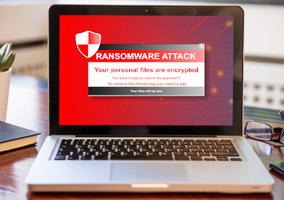Barely out of one crisis – the Covid-19 pandemic – we now find ourselves in another, with spiralling costs and inflation leading to a cost-of-living crisis. For many charities and donor-funded organisations, concerns about escalating costs are coupled with the challenge of meeting increased demand for services, creating the need to do more with less, against a backdrop of donations and funding streams that are eroded by inflation.
From another point of view, such economic crises provide the perfect opportunity for financial criminals and opportunistic fraudsters to take advantage of the situation. In times when finances are stretched, it is even more important to ensure that every penny is used as intended. Being aware of the heightened fraud risks your charity may face as a result of the cost-of-living crisis is critical to preventing fraud from undermining your activities and service delivery.
Several risk areas were highlighted by charities in our recent Charity Fraud Survey. While this indicates awareness of some key risks, there is always more that we can do to protect our organisations from fraud.
Risks areas to look out for
Weaknesses in oversight and controls resulting from restructuring: Reduced levels of funding may lead to restructuring, as charities try to find innovate solutions to meet rising demand. Changing individuals’ job roles and responsibilities can create unintended gaps in oversight and the operation of controls, which fraudsters can exploit for financial gain. When seeking to cut costs, internally-facing roles in finance, compliance and internal audit may be the first to be cut back, inadvertently increasing the opportunity for fraud to take place.
Pressure to commit fraud resulting from financial hardship and uncertainty: In times of financial hardship staff and volunteers may be driven to commit fraud, motivated by need rather than greed. When combined with increased opportunity - created through weakened internal controls - and justified through perceptions of unfairness or anxiety about the situation, the perfect environment for fraudulent conduct is created.
Offers that appear too good to be true: A desire to cut costs may push us towards taking advantage of offers that at times may seem too good to be true. For example, reduced-price products and easy-access loans, which may be designed to manipulate financial concerns and in fact be a front for financial criminals.
Product substitution: unscrupulous suppliers may seek to cover their own increasing costs by delivering lower quality products than those ordered and paid for.
Doing the wrong thing for the right reason: Staff and volunteers might be motivated to do the wrong thing for the right reason. For example, circumventing a procurement process to save time and guard against the risk of going over budget, or skipping reference checking on new staff members to get them on board quickly to ensure timely delivery of objectives to meet deadlines.
Loss of assets and information during project closure: In times of insufficient funding, it might be necessary to rationalise activities and to wind down certain projects more quickly than expected. As individuals are forced to leave their roles, the uncertainty may motivate a small minority to exploit any weaknesses in controls, leading to the theft of any assets related to the project or the sale of confidential information.
Phishing, smishing and social engineering: Fraudsters take advantage of crises to play on our worries and fears and exploit human behaviour for their own gain. This can be seen in the text message and email scams allegedly providing access to financial support, but actually containing a request to provide bank account details that are then used by fraudsters. In times of financial worry, we may be more vulnerable to being manipulated into sharing confidential information or financial data, especially if this comes packaged with offers of help or solutions to financial problems.
Fraudulent beneficiaries and service users: With increasing demand for services and a surge in beneficiaries, resources may be stretched to meet the demand. Fraudsters can take advantage of this overstretched environment to create fake beneficiaries or impersonate others.
How to protect your organisation
Having awareness of fraud risks is a necessary step in protecting your charity from fraud, but, in itself, is clearly not enough – you need to take action. The following are just some of the things you can do to help protect your organisation:
Don’t neglect the basics: there is no better time to review your approach to fraud prevention, including how you raise awareness of risks and the fraud prevention controls you have in place.
Don’t neglect financial controls: make sure to keep conducting reconciliations, spot checks and keeping asset registers and inventory logs up to date, especially in times of change or project closure.
Check before you pay: to guard against product substitution and overcharging, ensure that you have received the right goods and services before payments are made.
Check references and conduct due diligence: make sure you know who you are working with and who you are helping. Conduct reference checks on staff and volunteers, verify beneficiaries are genuine and conduct due diligence on your suppliers.
Address any gaps in controls: where changes to staff members’ roles take place, map the consequences for systems and controls and ensure that any gaps in oversight or segregation of duties are filled.
Conduct a fraud risk assessment: in light of changes to your operating environment caused by the economic situation, identify where your organisation is vulnerable to the risk of fraud and mitigating measures.
Think before you click: when receiving an email, or link by text message or email, consider if you are comfortable it is from a legitimate source. If in doubt, don’t assume, verify before clicking.
Laura Hough is a counter fraud and anti-corruption specialist at BDO
Related Articles












